The premiere of Daye: Seret Ahl El Daye was nothing short of magical—red carpet rolled out, cameras flashing, and excitement buzzing in the air. Badr Mohammed, the breakout star, was the first to arrive, carrying the same quiet confidence that defines his character. Moments later, director Karim El Shenawy stepped in with his cast, pride radiating in every step. The carpet kept glowing as stars like Yosra El Lozy, Hana Shiha, and Ahmed Magdy joined the celebration, setting the stage for a film that would prove just as unforgettable as the night itself.
A Cast That Shines Onscreen
Of course, the heart of the film belongs to its cast:
- Badr Mohammed as Daye, carrying the film with a performance that feels both fragile and powerful.
- Aseel Omran as the teacher, who plays her role with warmth and quiet defiance.
- Hanin Saeed as Leil, the sister who steals scenes with her fiery presence.
- Islam Mubarak as the mom, who delivers one of those rare performances where you feel every layer—her fear, her love, her contradictions.
Talents like Arfa Abdel Rasoul, Ahmed Helmy, Mohamed Mamdouh, Mohamed Shahin, Tamer Nabil, and Ahmed Abdelhamid round out the cast beautifully. And of course, there’s the special guest appearance from Mohamed Mounir, which the audience welcomed with literal applause.
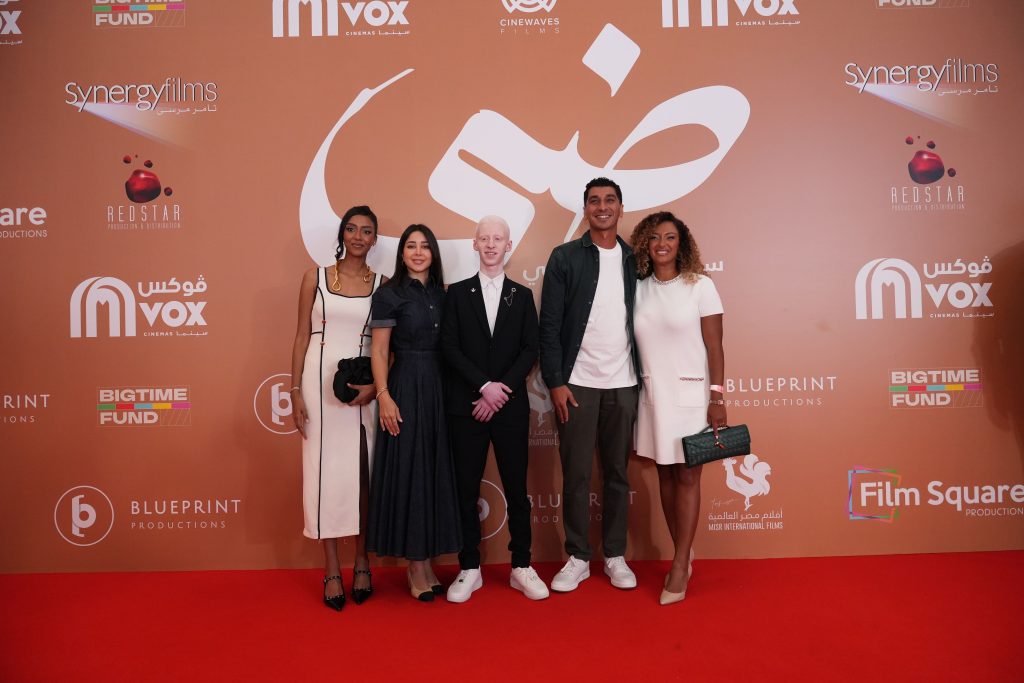
The Story at a Glance
Daye follows a 14-year-old Nubian boy with albinism whose golden voice sets him apart in every way. Bullied at school but encouraged by a teacher to audition for The Voice competition in Cairo, Daye dreams of something bigger.
His protective mom isn’t convinced, but eventually, she and his rebellious sister Leil join him on a road trip from Aswan to Cairo. What follows is a mix of laughter, heartbreak, and soaring music, as the little family navigates love, identity, and the courage it takes to step into the sun.
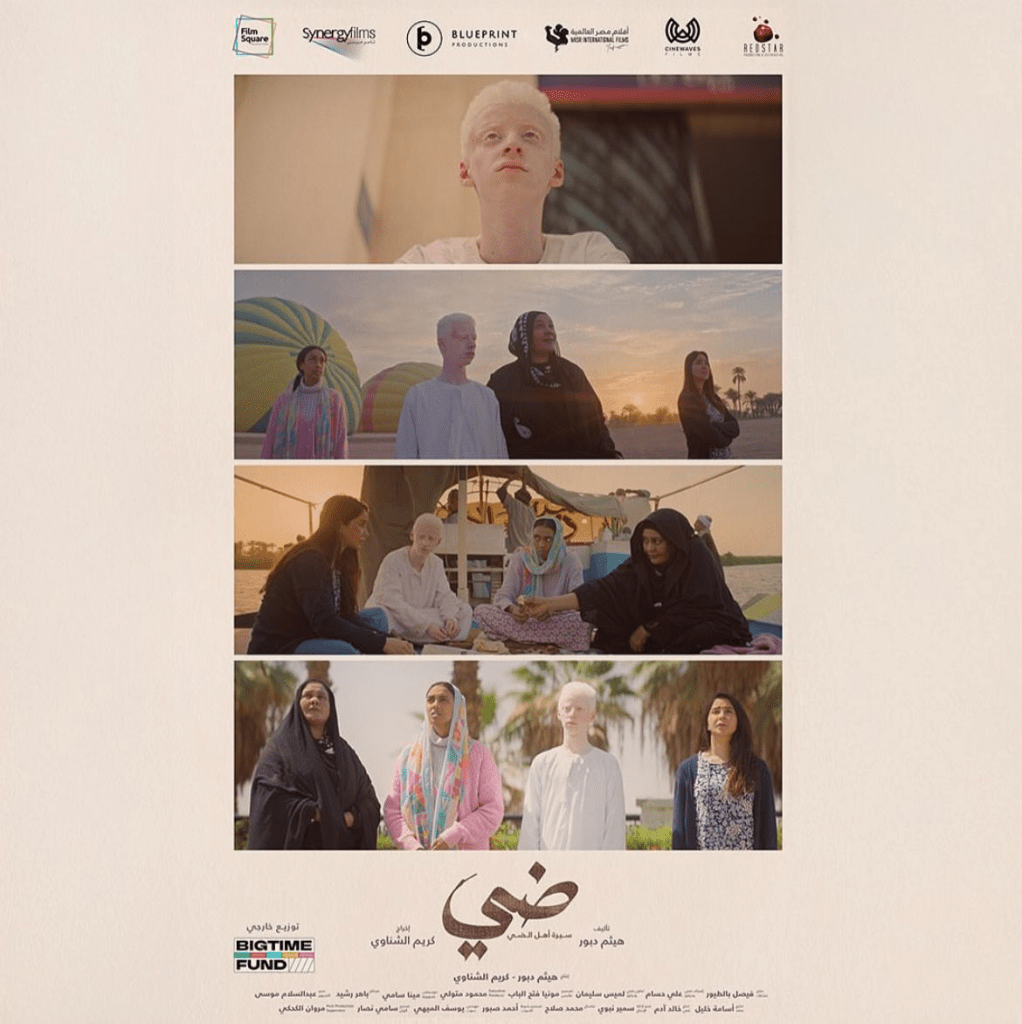
A Love Letter to Mounir’s Music & Nubian Culture
The film is basically a love letter to Nubia, to Aswan, and to Mohamed Mounir. His songs—like Ya Lalaly—don’t just play in the background, they carry the emotions of the characters and make you feel like you’re inside the story. Add to that the insane visuals of the Nile, palm trees, and sunrise over Luxor, and you’ve got cinema that feels like poetry.
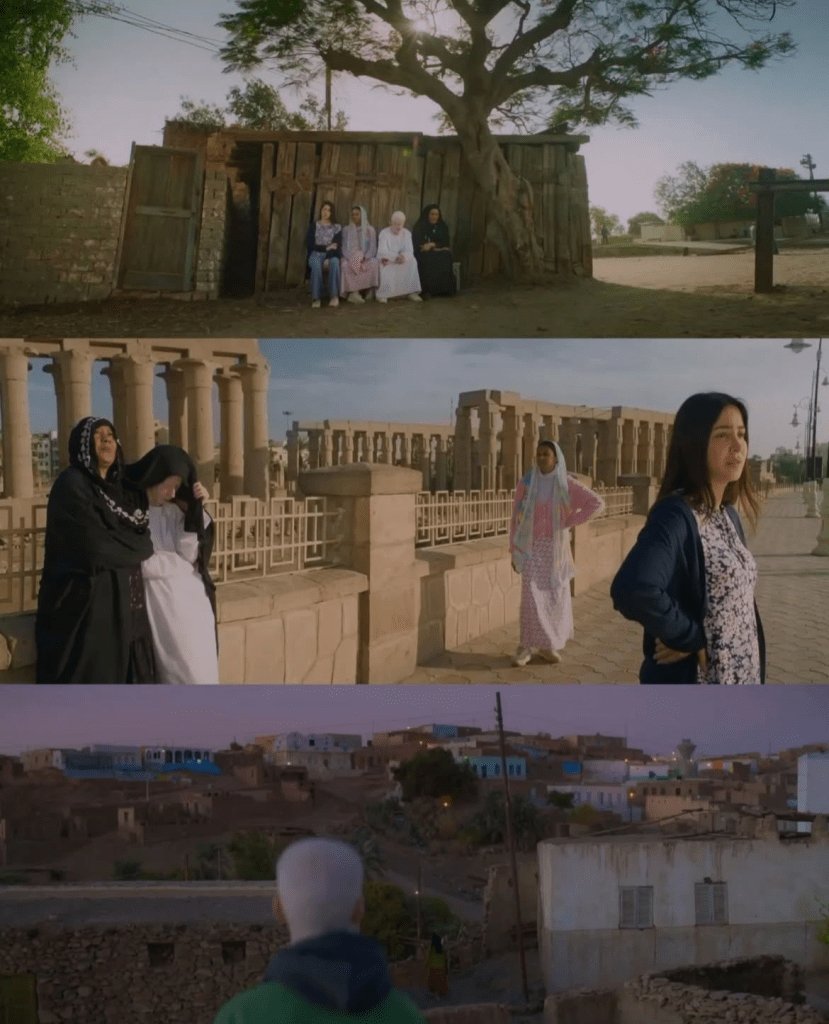
Storytelling That Hits Home
Thanks to writer Haitham Dabbour, the script is packed with Egyptian sayings, layered dialogue, and confrontations that feel raw and real. But deeper than that, it’s about the choice between hiding away and daring to be seen.
One of the most striking symbols is Daye hiding in the shade of his mom’s black scarf—a moment that says so much about protection, fear, and the cost of staying small.
Along with foggy visuals that mirror his blurred vision, the film uses imagery to speak volumes. With Dabbour’s writing, acting, and El Shenawy’s direction, the story stays alive with energy and emotion from start to finish.
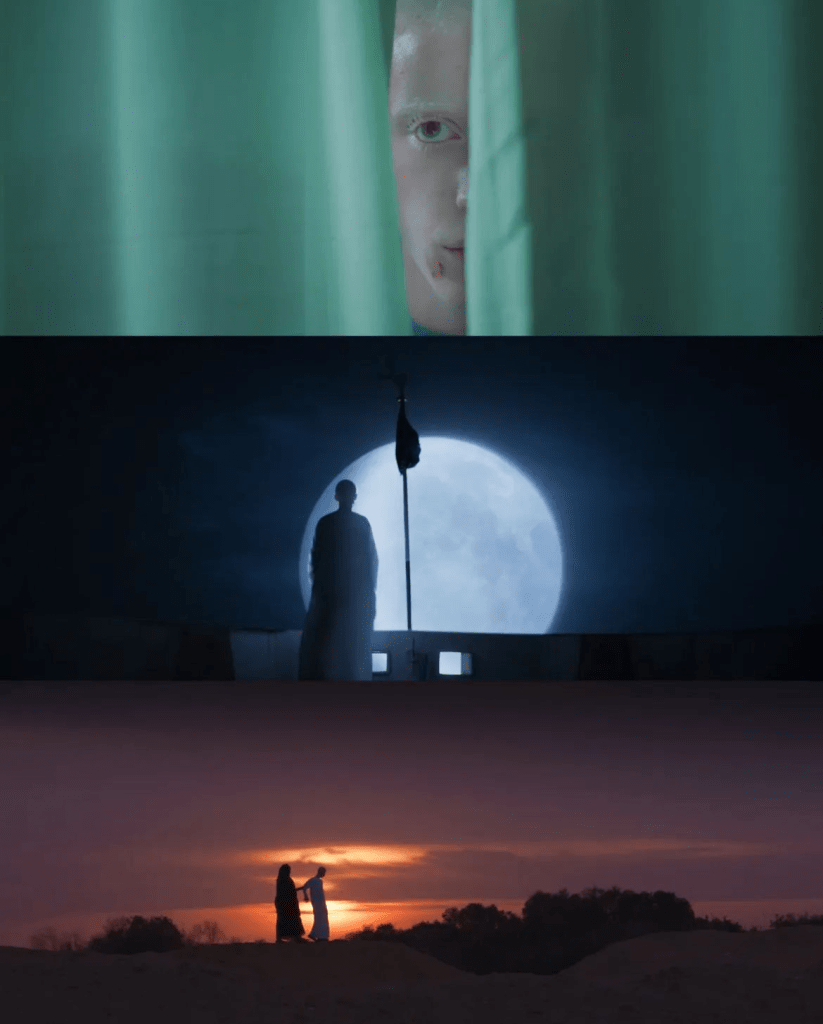
More Than Daye’s Story
What’s beautiful about Daye is how it doesn’t just stay focused on him. The film subtly opens windows into other struggles—like the overlooked “glass child” in families where one sibling gets all the attention, or the quiet pressures placed on women to marry. These threads add richness to the narrative without ever taking away from Daye’s journey.
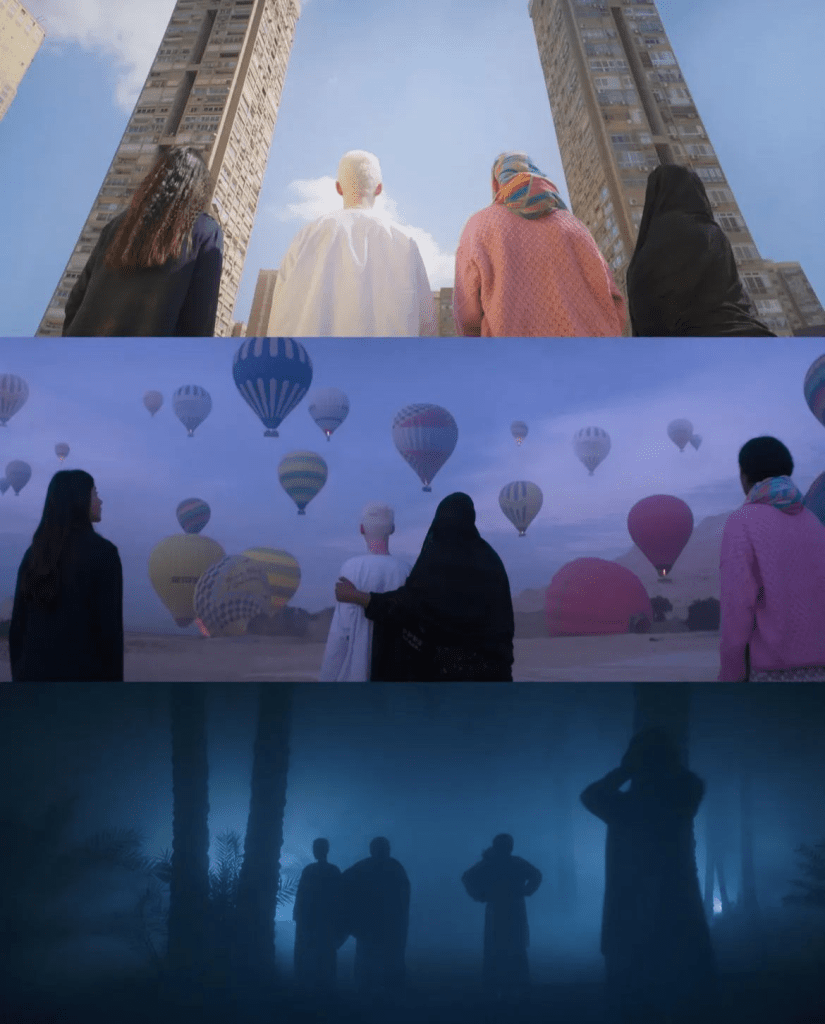
Women at the Core
Something that really stands out? Daye’s world is shaped by the women around him—his mom, his sister, and his teacher. They push him, protect him, and challenge him, making his journey less about just a boy chasing a dream and more about the strength of family and community.
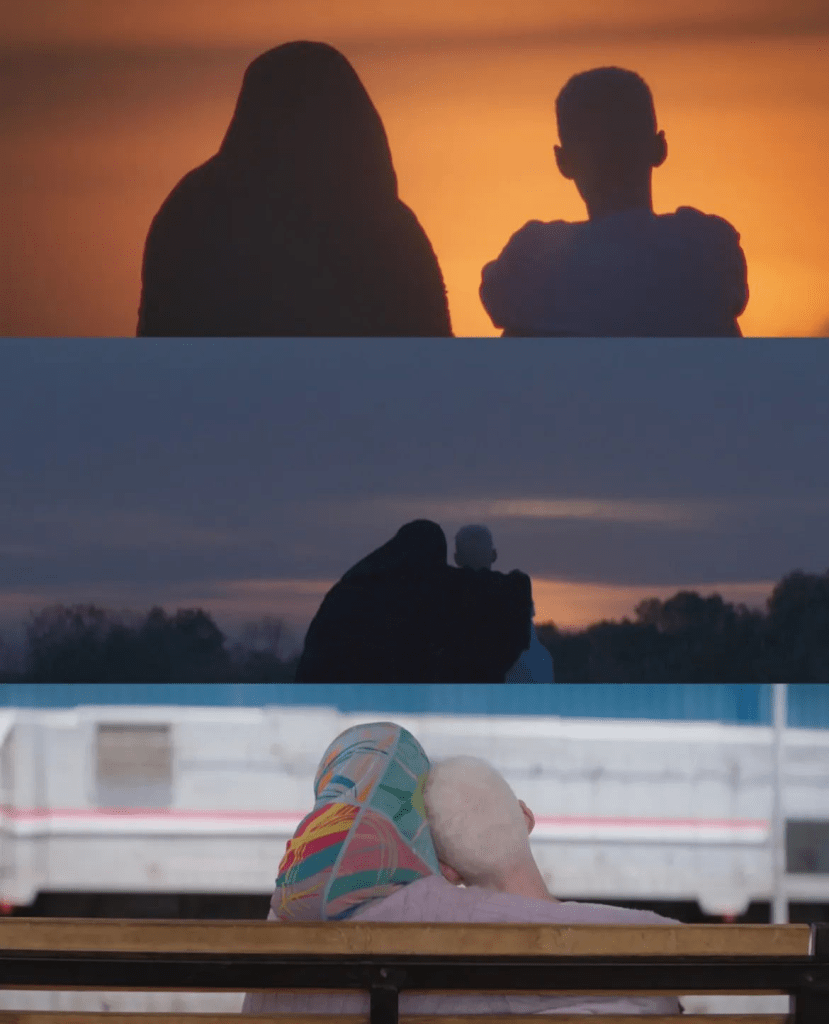
Humor in the Middle of Hardship
Even though the film dives into heavy topics—identity, belonging, difference—the audience was laughing out loud throughout. That balance of depth and humor is very Egyptian, and it makes the film feel honest and relatable.
Visual Storytelling at Its Finest
Beyond the dialogue, the film uses photography and symbolism in ways that hit deep. The way light, distance, and fog are used on screen makes you feel the characters’ inner worlds without a single word being spoken. It’s subtle but powerful—and a testament to Karim El Shenawy’s directing vision.
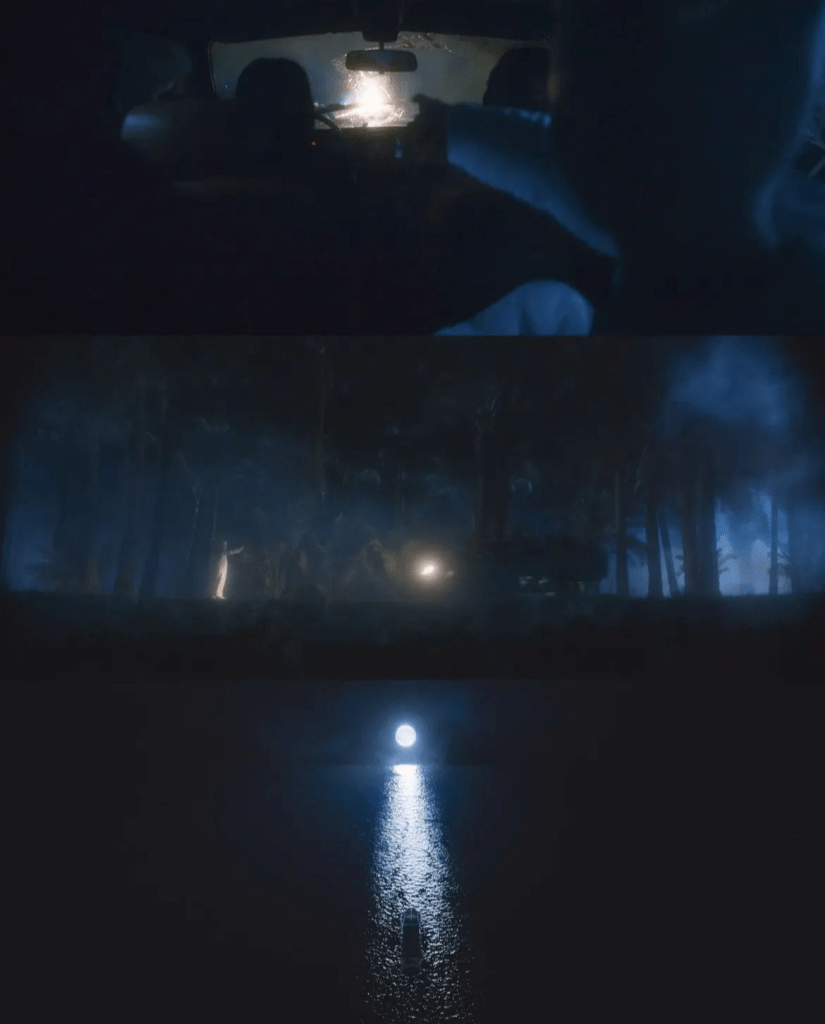
A Universal Journey with Local Roots
Already screened at the Red Sea International Film Festival, Berlinale, SAFAR Film Festival, and Malmö Arab Film Festival, the film clearly speaks to audiences everywhere. But its biggest triumph came at the Hollywood Arab Film Festival, where it won the Golden Horizon Award—the festival’s highest honor. On top of that, Karim El-shenawy took home Best Director, and Haitham Dabbour won Best Screenwriting, cementing the film’s artistic strength on every level.

Daye: Seret Ahl El Daye isn’t just a movie—it’s an experience. It celebrates Nubian culture, identity, and the courage it takes to step into the sun. With performances this strong, direction this sharp, and Mounir’s music woven through every beat, it’s the kind of film that stays with you long after you’ve left the cinema.
WE SAID THIS: Don’t Miss…El King on Screen: Mohamed Mounir’s Most Memorable Film Roles



